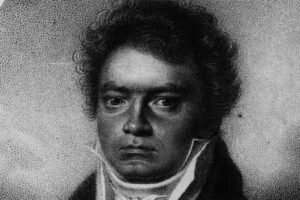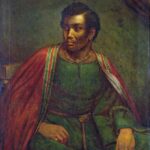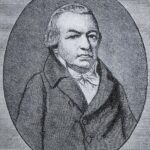Among the many myths surrounding Beethoven one of the interesting ones is about his African origin. Does Beethoven have African roots? Let us find out!
Beethoven’s African ancestry. Is this a relevant question?
It depends. Was Beethoven black? No! Was his skin darker in any way? Yes! Did he have African origins? Yes, as we all do! According to science the cradle of humanity is the African continent, meaning even Eric the Viking from the far North has African origins! Again, it depends…
The theory of Beethoven’s blackness
The idea of a black Beethoven got popular in the ‘50s and ‘60s during the Civil Rights Movement era, mostly in America. In 1963 in an interview Malcolm X told the press that “Hannibal, the most successful general that ever lived was a black man. So, was Beethoven.” According to his reasoning one of the forefathers in his bloodline was a Moor (Saracen) soldier.
Journalist and historian J.A. Rogers in the 1940s published his book titled Sex and Race, Negro-Caucasian Mixing in All Ages and All Lands. In this book he brings arguments supporting the idea of a Beethoven, whose appearance resembles strong African features. Among others, he points to his surprisingly strong build and brown skin tone, his curly hair. He reaches the conclusion that there had to be a Moor ancestor in the family tree.
Rogers was not alone. Among many others, just after the turn of the new century in 1907, a mixed-race British composer and conductor Samuel Coleridge-Taylor also aired his believes in a darker skinned Beethoven. He famously also said “…if the greatest of all musicians were alive today, he would find it somewhat difficult, if not absolutely impossible, to obtain hotel accommodation in certain American cities.”
One common root of all these speculations is that Beethoven was one-sixteenth black and had Moor in his bloodline. According to this theory during the Eighty Years’ War (when provinces that are the Netherlands, Belgium, and Luxemburg today – and home to the Beethovens- revolted for freedom against Phillip II. of Spain), Spanish soldiers invaded the area, among them many Moor mercenaries. As sadly common during wars, soldiers often harass local women, which regularly leads to unwanted pregnancy. This theory suggests such a situation on the mother side of Beethoven’s family tree.
The heated discussion
It is just natural to have strong demand for such a genius in human history, from all sides. Germans claim him their own as he was born and raised in Bonn. Vienna claims him Viennese as this was his home, as adult. Belgium would argue that the Beethovens are from their Flemish territory, many living there even today, as Beethovens.
|Related: What was Beethoven’s nationality?
One notable incident of such heated debate happened in 1988 in the Ujamaa house at Stanford University. Students got into a fierce battle of words on Beethoven’s alleged blackness. Later the white students took a Beethoven poster and doodled him into a black man, hanging the result on the door of the black students.
Is there any historical evidence supporting the theory of a black Beethoven?
In fact, there are more than one! What is described above concerning the presence of Moor or Mohr people in this part of Europe, is a fact. Also, there are more sources describing Beethoven as not a typical white German.
Renowned Beethoven Historian, Alexander W. Thayer writes in his Beethoven biography that “Beethoven had even more of the Moor in his features than his master [Haydn].” Haydn was also considered to have Moor ancestry.
A close family friend of the Beethovens, Frau Fischer wrote in her diary about the young Ludwig: “Short of stature, broad shoulders, short neck, large head, round nose, dark brown complexion; he always bent forward slightly when he walked. In the house he was called der Spagnol (the Spaniard).”
Carl Czerny (famous pianist and later teacher; master of Liszt) remembered his first meeting with Beethoven vividly describing him as Robinson Crusoe, brown in complexion, his stubble of whiskers reaching nearly to his eyes, his thick hair coal-black and bristling.
Beyond these lines we have no more reliable written evidence about him having darker skin.
As photography was not yet invented only paintings and drawings remain to us. Except this one, on all of them Beethoven is shown as a white man.

Conclusion
Europe has been a melting pot for many nations and races for thousands of years. North Africans, Vikings, the Huns, Turks, Germans, Slavs just to name a few from the more than 80 distinct peoples of Europe.
So, was Beethoven of African ancestry? Maybe. Maybe not. Probably not in any visually significant way.
At the end of the day music is universal and most importantly color blind!
Update!
In March 2023 a study was published after researching 8 different locks of hair, from which 5 were confirmed as authentic Beethoven. One area of the results is on the origins of Beethoven. Read our article here: Genomic analyses of hair from Beethoven – March 2023



















